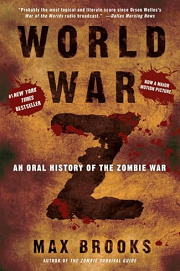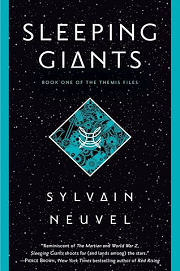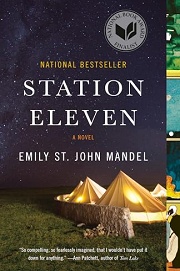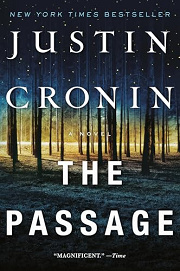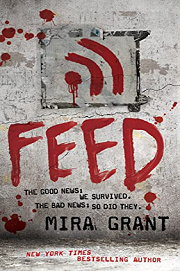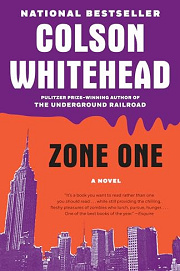Share your thoughts in a quick Shelf Talk!
World War Z by Max Brooks
Told through interviews and field reports, a shattered world recounts how humanity fought back against an unthinkable plague. World War Z blends global scope with intimate stories, delivering a haunting, propulsive chronicle of survival, ingenuity, and the thin line between panic and perseverance.
Have you read this book? Share what you liked (or didn’t), and we’ll use your answers to recommend your next favorite read!
Love World War Z but not sure what to read next?
These picks are popular with readers who enjoyed this book. Complete a quick Shelf Talk to get recommendations made just for you! Warning: possible spoilers for World War Z below.
In World War Z, did you enjoy ...
... the interview-dossier, oral-history format that pieces together a catastrophe?
Sleeping Giants by Sylvain Neuvel
If you loved how World War Z used interviews—from Todd Wainio’s shell-shocked Yonkers account to Breckenridge Scott’s slippery spin—to build a global picture, you’ll click with the secretive interview transcripts and memos in Sleeping Giants. A nameless interrogator grills pilots and scientists as they uncover gigantic alien artifacts, and the story unfolds through terse debriefs, mission logs, and classified files. That same investigative, piecemeal tension you felt as the UN report assembled the truth is alive here, but now it’s wrapped around a mystery-mecha rediscovery that keeps tightening with every document you read.
... a mosaic of interlinked survivor vignettes that echo across years?
Station Eleven by Emily St. John Mandel
Like how World War Z hops from Dr. Kwang Jingshu’s first encounter in China to soldiers reliving the Battle of Yonkers to civilians scraping by during the Great Panic, Station Eleven unfolds as a tapestry of lives before and after a pandemic. You’ll move between the Traveling Symphony’s performances, Clark tending the Museum of Civilization at Severn City Airport, and Jeevan’s early scramble—each vignette deepening the whole. It’s that same satisfying click of disparate stories aligning into a haunting portrait of a world remade.
... a sweeping, decades-spanning pandemic saga with global stakes?
The Passage by Justin Cronin
If the worldwide scale of World War Z—from the Redeker Plan’s brutal calculus to the postwar reclamation of continents—kept you turning pages, The Passage delivers a similarly vast arc. It tracks a government experiment gone wrong (Project NOAH), the fall, and the long, hard generations after, as scattered communities fight to rekindle civilization. That sensation of history being written in blood, logistics, and sacrifice—so present in the UN’s global oral history—thrums through this epic as it leaps across time and territory.
... pandemic-era media, spin, and government scheming amid the undead?
Feed by Mira Grant
If Breckenridge Scott’s bogus vaccine, state cover-ups, and the UN hearings in World War Z grabbed you, Feed dives headlong into that nexus of politics, journalism, and outbreak. Bloggers Georgia and Shaun Mason embed with a presidential campaign where CDC protocols, bio-terror whispers, and data suppression keep colliding with the news cycle. The way World War Z dissected policy failures—from Yonkers’ media theater to Redeker’s controversial triage—finds a sharp, suspenseful mirror in this conspiracy-laced election trail.
... the grim logistics of cleanup and resettlement after a zombie war?
Zone One by Colson Whitehead
If you were fascinated by World War Z’s aftermath—the retooled economy, feral-child rehabilitation, and methodical reclamation—Zone One lives in that weary grind. Following sweeper Mark Spitz through Lower Manhattan, it captures morale campaigns, bureaucratic pep, and the demoralizing slog of clearing stragglers block by block. It pairs the sardonic bite you heard in veterans’ Yonkers testimonies with the sobering reality of rebuilding, where the map looks hopeful but every corridor still hides a threat.
Unlock your personalized book recommendations! Just take a quick Shelf Talk for World War Z by Max Brooks. It’s only a few questions and takes less than a minute.
